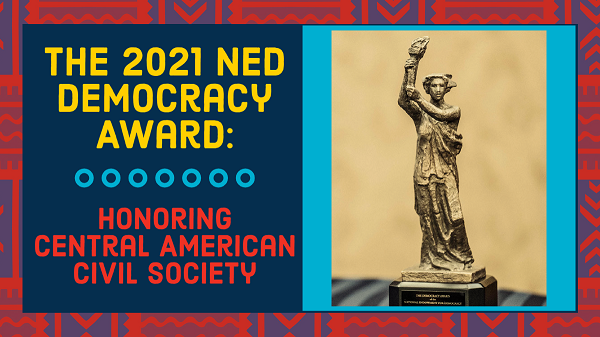
As the United States rolls back some of its global commitments, it should prepare for a homecoming of sorts, a political reengagement with its hemispheric neighborhood that is deeper and less episodic, argue Ryan C. Berg and Lauri Tähtinen. Although not everyone throughout the Americas may welcome deeper U.S. involvement, a return to Latin America and the Caribbean could accelerate the region’s economic, social, and political recovery from the ravages of COVID-19 and prevent its other capitals from striking Faustian bargains with Beijing, they write for Foreign Affairs:
-
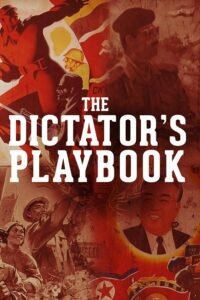
Credit: PBS
To that end, the United States should devise a pro-democracy strategy that is specific to the region and its particular challenges—and that urges the other signatories to the Inter-American Democratic Charter to take their commitment to democracy seriously……
- The United States will also have to supplant the dictator’s playbook with strategies and support for democratic leaders. To that end, it should fund efforts to reduce the polarization, conflict, and violence that have tilted the playing field toward authoritarians….
- It should also help the region install alarm bells within the inter-American system that can sound powerful warnings before it is too late to rebuild unraveling democratic norms and institutions—for instance, by monitoring the rapidly evolving social media landscape for political red flags…
- Another priority must be to deepen inter-American cooperation on all fronts and to collaborate to address dysfunction within the OAS. The United States will have an opportunity to spearhead such an effort when it hosts the next Summit of the Americas in 2022….RTWT
Across Central America, democracy and its institutions are under duress as authoritarians consolidate power, further destabilizing and impoverishing citizens. From the co-opting of judiciaries to full-fledged attacks on political opposition and civic actors alike, proponents of democracy are increasingly worried about what the future holds, the National Endowment for Democracy adds.
A forthcoming event (see below) will celebrate those activists in civil society and independent media who – often at great cost and personal risk – work to advance and protect democratic rights and processes, expose anti-democratic actions, and chart new paths and ideas for a democratic future.
While democratization, i.e. transforming an authoritarian state into a democratic one, is important, so is sustaining democracies that are already in place. Venezuela and Nicaragua both democratized in the 20th century, and only after a lengthy period of apparent stability did the current regimes emerge. We should be wary of countries that might take the same path in the near future, particularly in El Salvador with President Bukele’s latest judiciary power grab, notes María Isabel Puerta Riera, a Visiting Professor of Political Science at Valencia College.
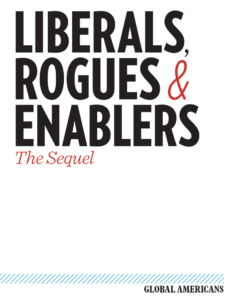 A strategic response must consider both the domestic landscape and the international community’s policy goals. Any multilateral effort should involve local actors, promoting a broad network with a focus on supporting internal capacities and encouraging funding opportunities, along with training, she writes for Global Americans:
A strategic response must consider both the domestic landscape and the international community’s policy goals. Any multilateral effort should involve local actors, promoting a broad network with a focus on supporting internal capacities and encouraging funding opportunities, along with training, she writes for Global Americans:
The Biden administration has indicated its backing for democracy promotion instead of interventions, signaling its preference for concerted efforts through multilateral diplomatic initiatives, such as the ongoing negotiations between the Venezuelan government and the opposition. The reframing should also include other regional actors like the Organization of American States. If the Biden administration develops a combined regional strategy, it could represent a renewed opportunity for transition from the deterioration to the restoration of democratic institutions in the region.
Central America has also shown how impotent U.S. economic punishments can be. In response to a crackdown against democratic activists by President Daniel Ortega of Nicaragua, the Trump and Biden administrations have imposed sanctions on more than 100 public officials, including Mr. Ortega and his wife and the vice president, Rosario Murillo. Despite these punishments and the suspension of U.S. development support, seven of Nicaragua’s potential opposition candidates for the Nov. 7 presidential elections are in jail or under house arrest and over 100 political prisoners remain behind bars, says Chatham House analyst Christopher Sabatini.
The White House, Congress and experts in the field need to conduct a public bipartisan review of America’s ever-growing sanctions regime to assess the humanitarian impact and evaluate how well the nation’s goals are furthered by such punitive policies, he writes for the Times.
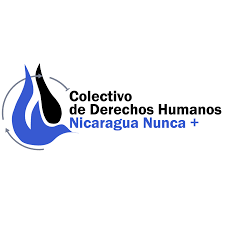 Such an evaluation should establish other diplomatic tools to lay out concrete, realistic steps toward calibrated relief of sanctions (regime change does not count), diplomatic channels to negotiate through third parties, financial incentives through development aid or assurances to private investors to induce change, and coordinating with other sanction-applying entities in these diplomatic efforts.
Such an evaluation should establish other diplomatic tools to lay out concrete, realistic steps toward calibrated relief of sanctions (regime change does not count), diplomatic channels to negotiate through third parties, financial incentives through development aid or assurances to private investors to induce change, and coordinating with other sanction-applying entities in these diplomatic efforts.
The National Endowment for Democracy is proud to honor the bravery, commitment, and talent of four of our civil society partners with the 2021 Democracy Award. The program will highlight the voices of these inspiring activists, as well as analysis from leading regional experts, the U.S. Congress and the Biden Administration.
About the Awardees
Colectivo de Derechos Humanos Nicaragua Nunca Más is dedicated to preserving historical memory in Nicaragua and seeking justice for victims of the state-led violence unleashed by the Ortega regime in 2018. The organization documents cases of torture and other human rights violations, and engages in national, regional, and international advocacy to promote and protect the rights of victims. It also provides much-needed psychosocial support to victims.
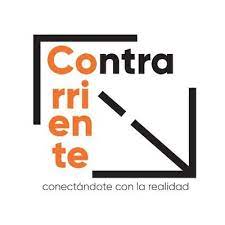 Contracorriente was established during the Indignados (‘Outraged’) protests of 2015 in Honduras. Contracorriente emerged from a need to provide citizens with objective and accurate information on critical issues such as human rights and corruption. Co-founded by two women journalists, Contracorriente provides Hondurans with in-depth coverage on topics not typically covered by the media. The organization has collaborated with other regional digital media outlets and has received increasing recognition as a source of reliable information and analysis.
Contracorriente was established during the Indignados (‘Outraged’) protests of 2015 in Honduras. Contracorriente emerged from a need to provide citizens with objective and accurate information on critical issues such as human rights and corruption. Co-founded by two women journalists, Contracorriente provides Hondurans with in-depth coverage on topics not typically covered by the media. The organization has collaborated with other regional digital media outlets and has received increasing recognition as a source of reliable information and analysis.
The Myrna Mack Foundation (MMF) was established in 1993 to fight against impunity and to help build democratic rule of law in Guatemala, following the death of Myrna Elizabeth Mack—murdered by state forces in 1990 for her work to uncover internal displacement during the armed conflict. Since its founding, the foundation has trained civil society and government agencies on democratic governance, political participation, transparency, and citizen security with a comprehensive view on human rights.
 Asociación Transparencia, Contraloría Social y Datos Abiertos (Transparency, Social Oversight, and Open Data Association, or TRACODA) is an organization of young professionals with diverse backgrounds that devote themselves to strengthening democracy and fighting against corruption in public and private spheres. Previously, the group worked on promoting electoral reforms, conducting oversight of the Salvadoran congress, and overseeing selection processes for the Attorney General and Supreme Court Justice magistrates. In 2018, TRACODA created a citizen observatory of the Corte de Cuentas, the country’s fiscal oversight court.
Asociación Transparencia, Contraloría Social y Datos Abiertos (Transparency, Social Oversight, and Open Data Association, or TRACODA) is an organization of young professionals with diverse backgrounds that devote themselves to strengthening democracy and fighting against corruption in public and private spheres. Previously, the group worked on promoting electoral reforms, conducting oversight of the Salvadoran congress, and overseeing selection processes for the Attorney General and Supreme Court Justice magistrates. In 2018, TRACODA created a citizen observatory of the Corte de Cuentas, the country’s fiscal oversight court.
Wednesday, October 20, 2021. Keynote and Panels at 4:00 p.m. EDT. Award Presentation at 6:00 p.m. EDT
Keynote remarks by Ricardo Zúñiga, Principal Deputy Assistant Secretary for Western Hemisphere Affairs and Special Envoy for the Northern Triangle, U.S. Department of State.
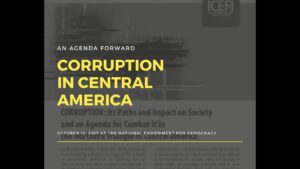 Panel I: Democracy and Governance in Central America: Defending Civic Space and Independent Media for Democratic Accountability
Panel I: Democracy and Governance in Central America: Defending Civic Space and Independent Media for Democratic Accountability
Moisés Naím, Carnegie Endowment for International Peace (moderator)
Antonia Urrejola Noguera, Inter-American Commission on Human Rights
Santiago Cantón, Inter-American Dialogue
Luis Botello, International Center for Journalists
 Panel II: Discussion with 2021 NED Democracy Awardees
Panel II: Discussion with 2021 NED Democracy Awardees
Damon Wilson, National Endowment for Democracy (moderator)
Gonzalo Carrión, Nicaragua Nunca Más
Helen Mack, Myrna Mack Foundation
Diego Jacobo, TRACODA
Jennifer Ávila, Contracorriente
Presentation of Democracy Awards by Members of Congress
featuring remarks by
Senator Tim Kaine
Representative Norma J. Torres







